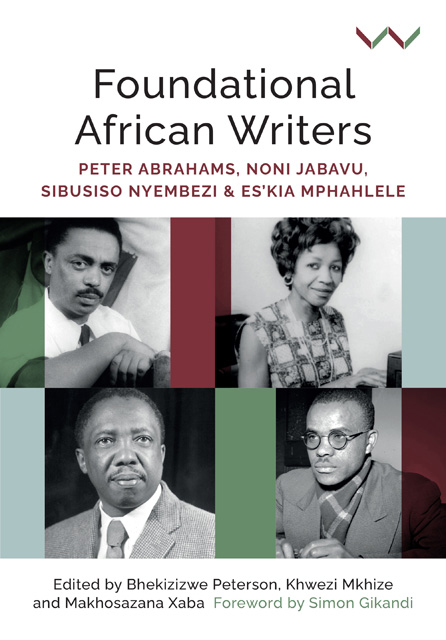Book contents
- Frontmatter
- Contents
- List of illustrations
- Foreword
- Acknowledgements
- Tribute to Professor Bhekizizwe Peterson
- Introduction
- Part I Remapping and Rereading African Literature and Cultural Production
- Part II South Africa and Fugitive Imaginaries
- Part III In the Eye of the Short Century: Diaspora and Pan-Africanism Reconsidered
- Contributors
- Index
9 - Escaping Apartheid: Race, Education and Cultural Exchange, 1955−2003
Published online by Cambridge University Press: 01 September 2022
- Frontmatter
- Contents
- List of illustrations
- Foreword
- Acknowledgements
- Tribute to Professor Bhekizizwe Peterson
- Introduction
- Part I Remapping and Rereading African Literature and Cultural Production
- Part II South Africa and Fugitive Imaginaries
- Part III In the Eye of the Short Century: Diaspora and Pan-Africanism Reconsidered
- Contributors
- Index
Summary
I think it is of vital importance that Black South Africa is collectively aware of the dangers of falling into the middle class trap that the South African government seems to be preparing for us. One of the strategies Pretoria is working on is to buy-off [sic] black anger by creating greater opportunities for middle class aspirations … it would not surprise me to see certain groups of blacks recruited to participate in the system. We must block that strategy.
—Mangosuthu Gatsha Buthelezi, 1980If Noni Jabavu’s writing is best described as autobiographical, it is likewise akin to travel memoir. But travel memoir in the context of a South Africa that, for Jabavu, was made relatively inaccessible in the face of apartheid legislation, and yet a South Africa she sought to visit, if only quite sporadically. This chapter explores such continuities of departure and arrival, of leaving South Africa (whether permanently or temporarily), and the consequences of such departures for those who left and returned. Accounting for the historical period extending from the time immediately following the establishment of apartheid through to the period immediately following apartheid’s collapse, I look to the work of the United States-South Africa Leader Exchange Program (USSALEP), which brought South Africans to the USA and Americans to South Africa. Given the primarily educational charge of the Exchange Program, the chapter moves to examine the assumptions, possibilities and impasses of ‘study abroad’ and overseas ‘job training’ as catalysts for black social mobility. ‘A private, multiracial association dedicated [since 1958] to fruitful communication, the fostering of human dignity, and the broadening of options within and between South Africa and the United States’, USSALEP would come to understand its charge as addressing the blight of racism in both societies. Humble, and not a little naive at the outset, the programme would give way in due course to standard non-governmental organisation (NGO) activities focused on ‘transformation’ and ‘development’. Supported by Congressional funding administered through the United States Agency for International Development (USAID), in later years USSALEP directed its work quite explicitly at moving the political needle in South Africa.
- Type
- Chapter
- Information
- Foundational African WritersPeter Abrahams, Noni Jabavu, Sibusiso Nyembezi and Es'kia Mphahlele, pp. 195 - 214Publisher: Wits University PressPrint publication year: 2022



